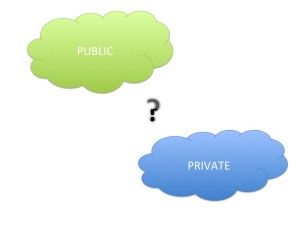Gamification of Education
One of the first things you might want to consider when choosing an LMS which can be gamified is whether you want it to be public or private cloud. What is the difference? Public Cloud is software as a service (SaaS), which means it is a software distribution model in which applications are hosted by a vendor or service provider and made available to customers over a network, typically the Internet. Software as a service, works mostly under a Multi- Tenant model such as Gmail: There is one server which has hundreds and hundreds of clients.
 On the other hand, we have the Public Cloud which basically takes advantage of all the cloud features such as redundancy, scalability and leveraging the infrastructure in the cloud to save costs, but it is one particular cloud so the data is not shared and you can implement customizations. Totara, Moodle and Paradiso LMS’s are private cloud where you have a single instance on a particular cloud, that way you get all the advantages of the cloud but you are the only one on it.
On the other hand, we have the Public Cloud which basically takes advantage of all the cloud features such as redundancy, scalability and leveraging the infrastructure in the cloud to save costs, but it is one particular cloud so the data is not shared and you can implement customizations. Totara, Moodle and Paradiso LMS’s are private cloud where you have a single instance on a particular cloud, that way you get all the advantages of the cloud but you are the only one on it.
One of the advantages is that you can make it as secure as you want since it offers very high security levels. You also have more control because it is only for you, so you can do a lot of integrations and customizations without having to go through layers and layers of core which has been built for Multi-tenancy situations. For instance, if you have a company of more than 2,000 thousands employees, a private cloud would be the best fit for you since the Multi-Tenant public cloud gets up and running in two hours and is meant to be for 100 or 200 hundred users. Beyond that, you don’t really get the cost benefit since you would not be able to do customizations, plus you would get tighter vendor lock-in, so let’s say tomorrow a bigger company is interested in adquire yours, it would be extremely hard for that company to get the data out of your public cloud multi-tenant company. Also mayor integrations would be really hard to implement.
Finally, the multiple clients in a public cloud company don’t share the core with each other most often; if you end up using the APIs, that means you will end up building your own integration which costs a lot of money.
A private cloud company such as Paradiso Solutions cloud-based LMS, can implement a lot of cost effective integrations such as Moodle Salesforce, Moodle WebEx, Moodle Drupal and gamification elements to our LMSs. That is how we give value to our clients, offering 25/7 support, backups and redundancy so you get the benefits of a public cloud but in a private environment taking advantage of customizations and LMS personalization.












